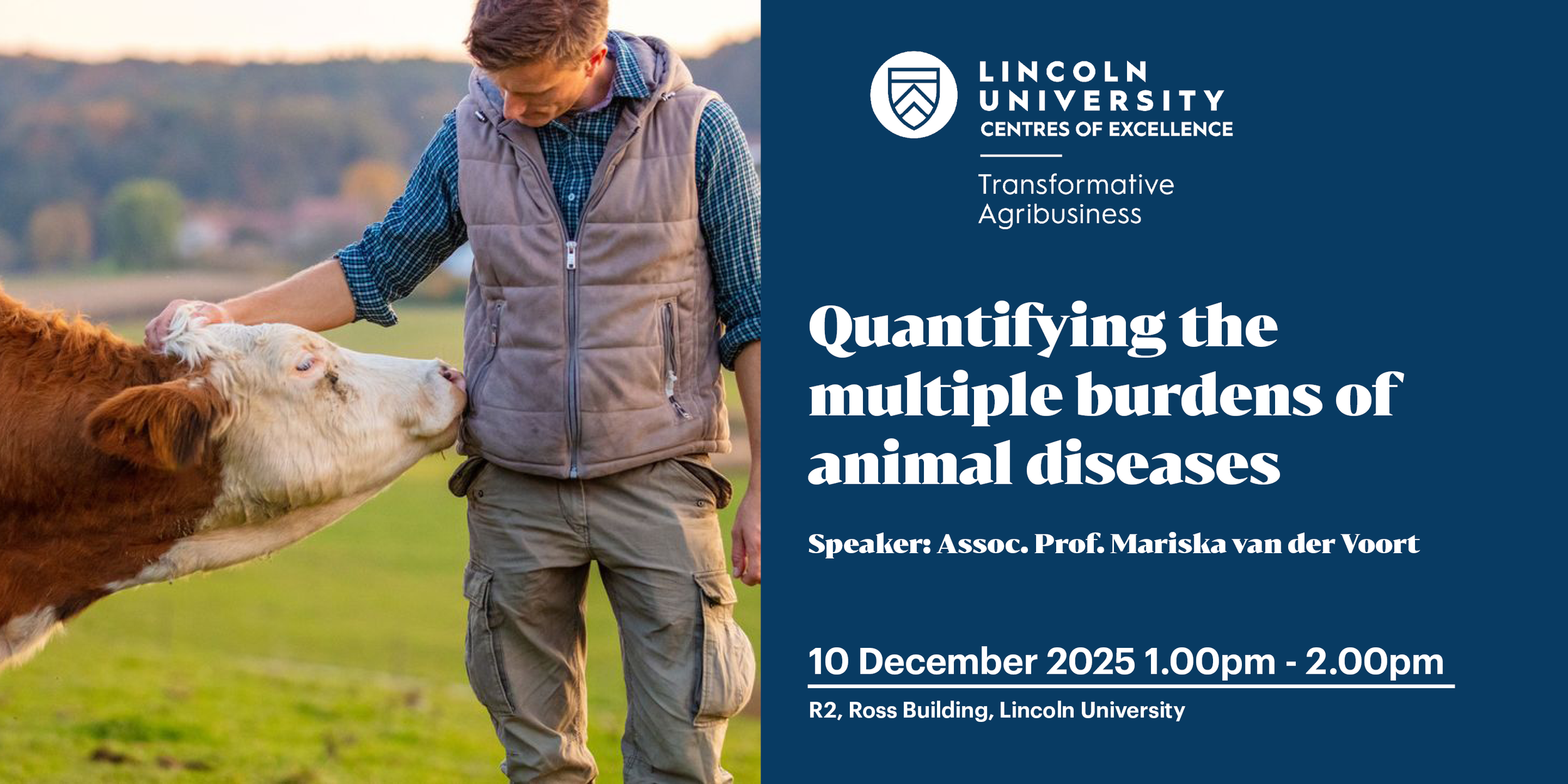The economic burden of animal diseases is well-recognized and has been quantified for many conditions. However, animal diseases also create additional burdens—affecting animal welfare, the environment, and public health. These non-monetary impacts are becoming increasingly important in decision-making around animal production, yet they are rarely quantified.
In this presentation, Assoc. Prof. Mariska van der Voort will outline her current approach to quantifying the multiple burdens of animal diseases. Because a significant part of her work focuses on the value of data-driven systems, she will also demonstrate how assessing these burdens connects to the use of sensor technologies in animal production.
Timings
1.00pm: Guests arrive
1.05pm: CoE Introduction
1.10pm: Keynote Speaker
1.45pm: Q&A Session
2.00pm: Event finishes
Wednesday 10th December
1.00pm - 2.00pm
Room R2, Ross Building, Lincoln University
About Our Speaker
Assoc. Prof. Mariska van der Voort
Mariska van der Voort is an Associate Professor in the Business Economics Group at Wageningen University, specializing in the value of data-driven applications to support decision-making in animal-source food production. She holds a PhD in Agricultural Economics from Ghent University, Belgium and started in 2015 as a postdoc researcher at the Business Economics Group. As a PhD and later as a Post-Doctoral Researcher she worked on different research project in the domain of agricultural economics, animal health and production economics, farm management, and decision support.
Her current research examines the value of information provided by data-driven technologies from two distinct perspectives: empirical data analysis and normative modeling. In addition to evaluating economic value, the work also focuses on quantifying the impact of animal diseases on animal welfare burden and environmental burdens within this framework. She adopts an interdisciplinary and transdisciplinary research approach, integrating insights from epidemiology, animal science, genetics, data science, and marketing. Her focus spans major global animal-source food production systems, including dairy cattle, poultry, pigs, and aquaculture. These systems exhibit varying levels of adoption of data-driven applications, ranging from early to late adopters, and encompass diverse technology readiness levels (TRLs).
As a lecture she teaches different courses at Wageningen University in relation to business economics, animal health economics and the use of big data in business decision.


